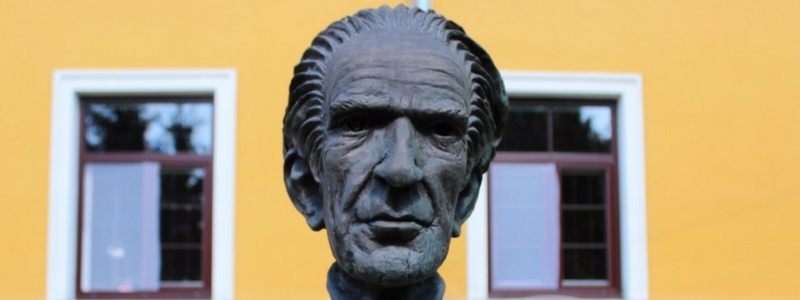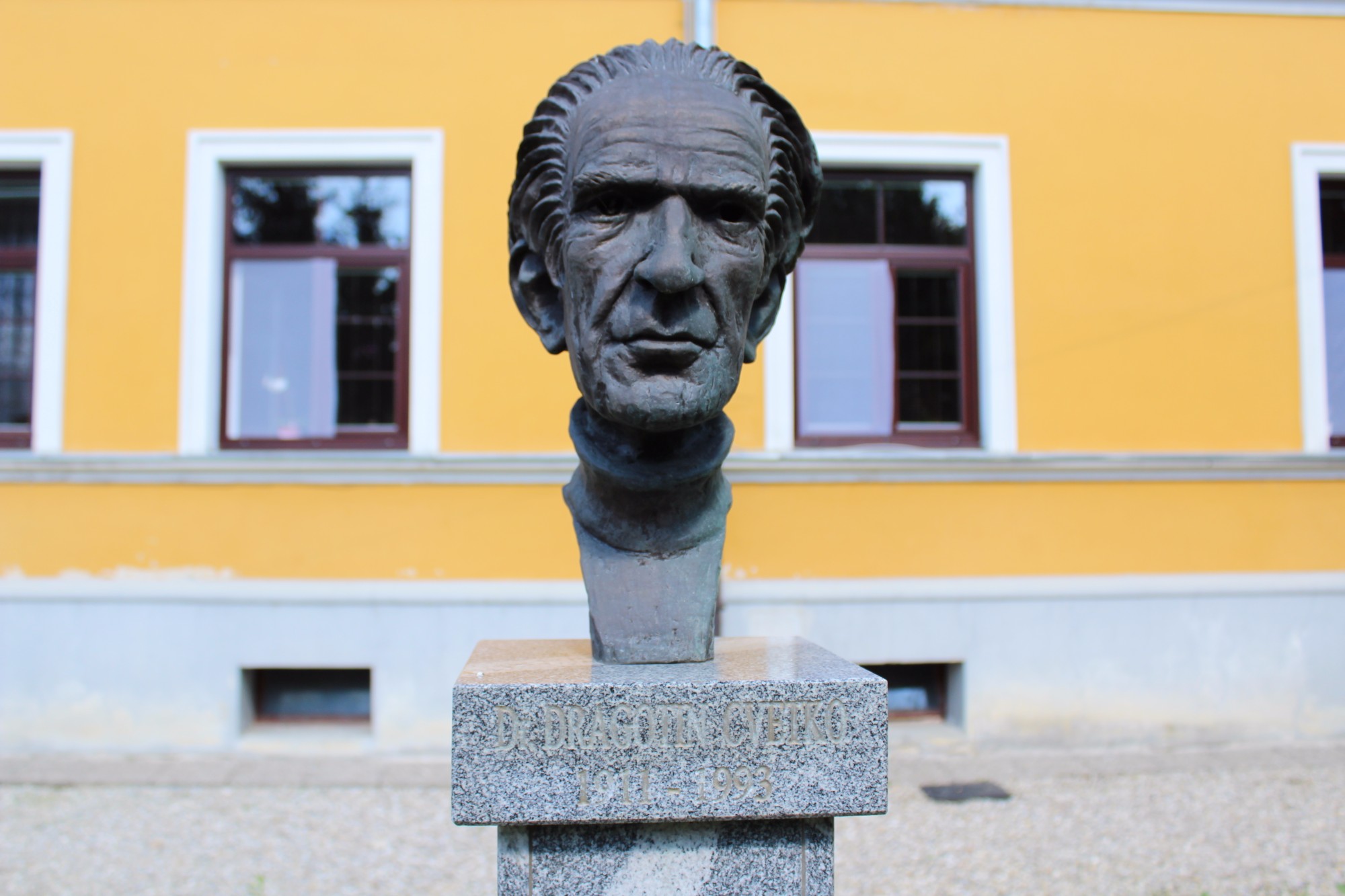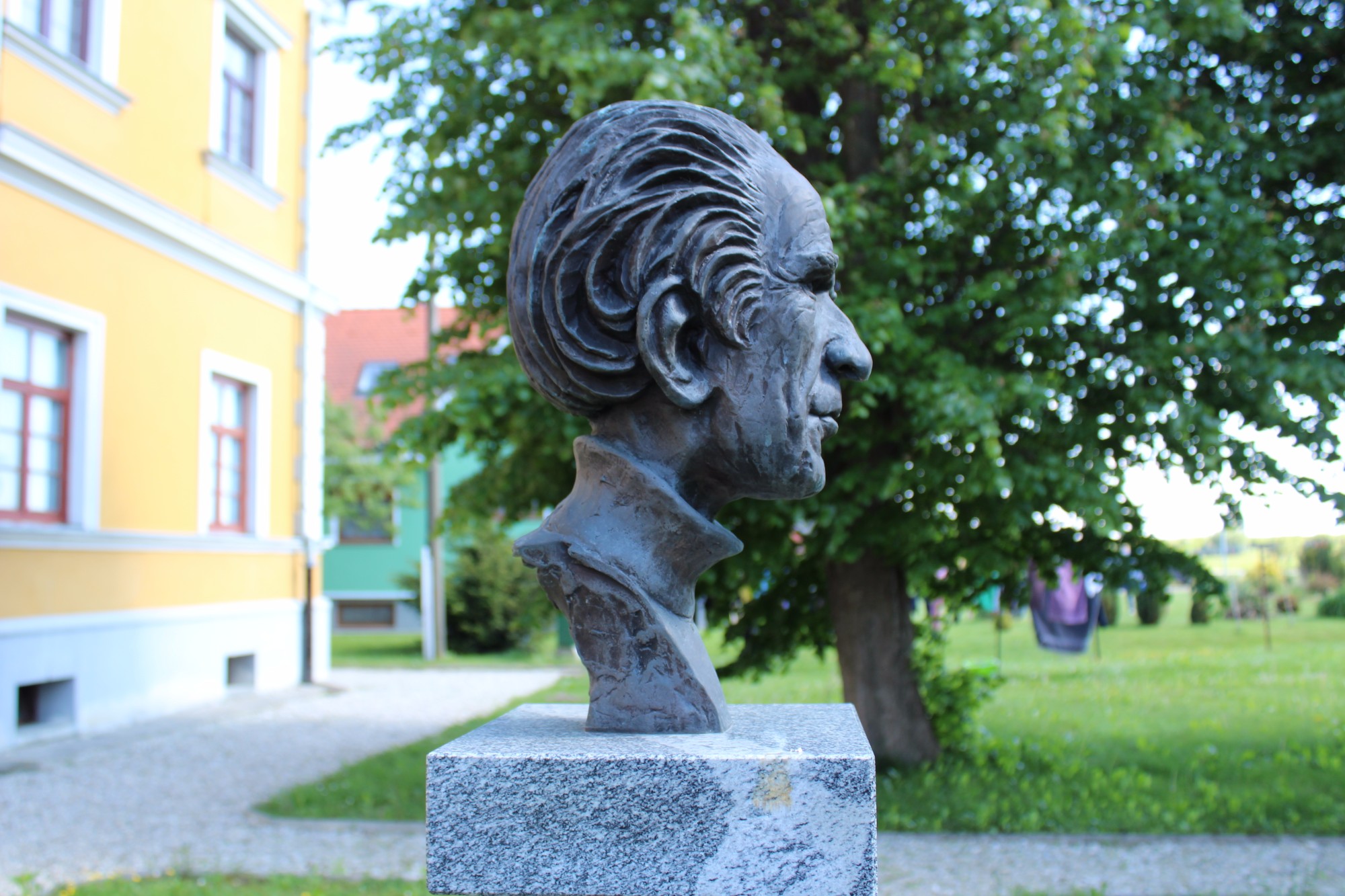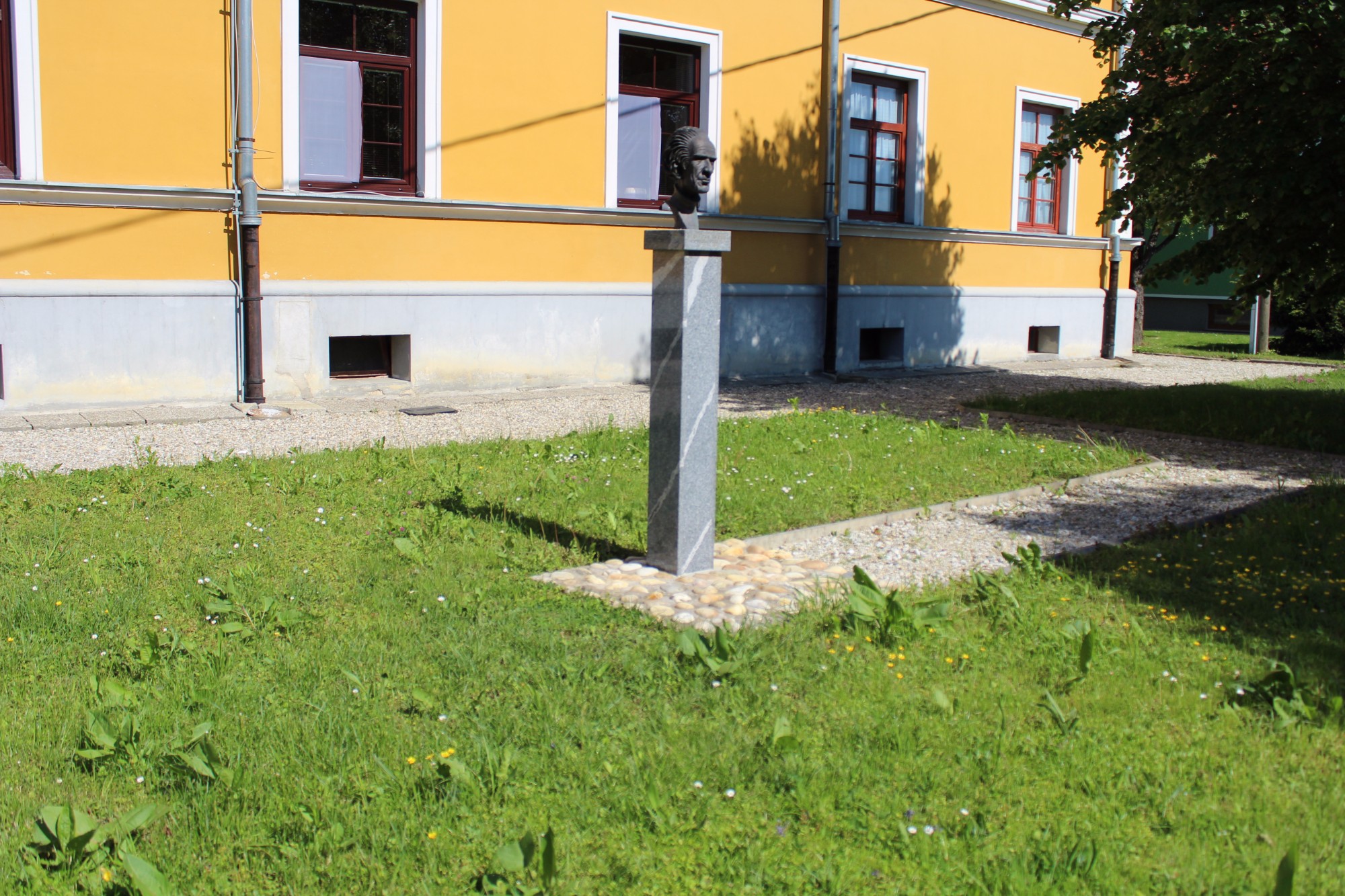In 2011, on the centennial of Dragotin Cvetko’s birth, a bronze bust dedicated to him, made by sculptor Edo Dolinar, was unveiled in Cvetko’s birthplace, Vučja vas.
Dragotin Cvetko
In introducing scholarly analysis of music into Slovenian cultural consciousness Dragotin Cvetko (1911–1993) became the father of Slovenian musicology. It was through his endeavours, following the main European trends, that the independent science of musicology developed from music essayism and criticism in Slovenia. Here, musicology first emerged and further developed through Cvetko’s scientific research and scholarly articles and publications. His many monographs, which are the first comprehensive musicological overviews of works by Slovenian composers, also encouraged the production of similar writings throughout the Yugoslavia of that time.
Cvetko’s interest in music was aroused early on as a result of his stimulating domestic environment. His parents taught him to play piano, and in the early 1920s he became acquainted with Slavko Osterc in his family home, where this composer played in a string trio together with Dragotin’s father, violinist Fran Cvetko. He obtained his first formal music education at the school of the Glasbena matica Music Society in Maribor, and later studied pedagogy and psychology at the Faculty of Arts in Ljubljana, and at the State Music Conservatory composition under Slavko Osterc and solo singing with Matej Hubad. It was already as a student that Cvetko applied himself to music analysis by publishing reviews in the newspapers Slovenija and Jutro (Slovenia, Morning).
Graduating in pedagogy and psychology, in 1937 Cvetko also obtained a bachelor’s degree from the Music Academy of the State Conservatory in Ljubljana. He then went to Prague, where he studied contemporary music trends at the Institute for Music Education and at the State Conservatory’s Master School in the class of Czech composer Alois Hába. While attending lectures, he developed a strong interest in the musicological approach and gradually realised that music research appealed to him far more than composition or music performance. He became aware of the relatedness of art and science, which, according to Cvetko, are connected through “an emotionally conditioned fantasy, an invention that reaches beyond its proper time,” and whose artistic value renders it atemporal.
In 1938, he obtained a PhD in Ljubljana, with a dissertation on the issues of music education, and then returned to Prague, a city that served him as a window onto the wider world and trends in contemporary music. Whilst there, he attended events staged by the Prague Contemporary Music Society.
In the late 1930s, the strained political situation compelled Cvetko to return to Ljubljana, where, with the help of his referee, Julij Betetto, he obtained work as a teacher at the Ljubljana Music Conservatory, lecturing on Benjamin Ipavec, Primož Ramovš and others.
During the war, Cvetko suspended his musical pursuits and joined the Partisan resistance forces. After the war, he brought to fruition his idea of establishing a music history department at the Academy of Music in Ljubljana, where he taught from 1945.
He later returned to Prague, where he was the first researcher to conduct a scientific study of Jacobus Handl Gallus, collecting and analysing material on this Renaissance musician. He presented papers on Gallus, music education and the music of the Yugoslav nations at various international conferences in Brussels and at the universities of Nottingham, Edinburgh, etc. In the 1950s and 60s Cvetko’s international prominence grew; he delivered talks in major European cities (Paris, London and Cologne), met some of the most distinguished musicologists and was guest speaker at the prestigious universities of Berkeley and Stanford in the USA. He made his mark not only abroad, but also established a scientific department at the Academy of Music in Ljubljana aimed at institutionalising musicology.
It was also through his efforts that, in 1960, the Chair of Musicology was transferred from the Academy of Music to the Faculty of Arts, where he served as Head of the Musicology Department from 1962. He started publishing the journal Muzikološki zbornik (Musicological Proceedings), which included scientific contributions from all parts of Yugoslavia. Between 1970 and 1972, at the height of the student demonstrations, he was appointed Dean of the Faculty of Arts. In 1972, he founded the ZRC SAZU Institute of Musicology (Research Centre of the Slovenian Academy of Sciences and Arts).
Since musicology did not exist in Slovenia as a systematically instituted discipline until WWII, Cvetko’s efforts were crucial for institutionalising and laying the foundations of the science of music history and music analysis, which at the time was influenced by the philosophical postulates of European positivism. In his notable music monographs (on Gallus, Davorin Jenko, Risto Savin, etc.), Cvetko outlined the work of musical giants, mapping it against the backdrop of social reality. He received the Prešeren Award for his work Zgodovina glasbene umetnosti na Slovenskem (History of Music in Slovenia).
Maia Juvanc



